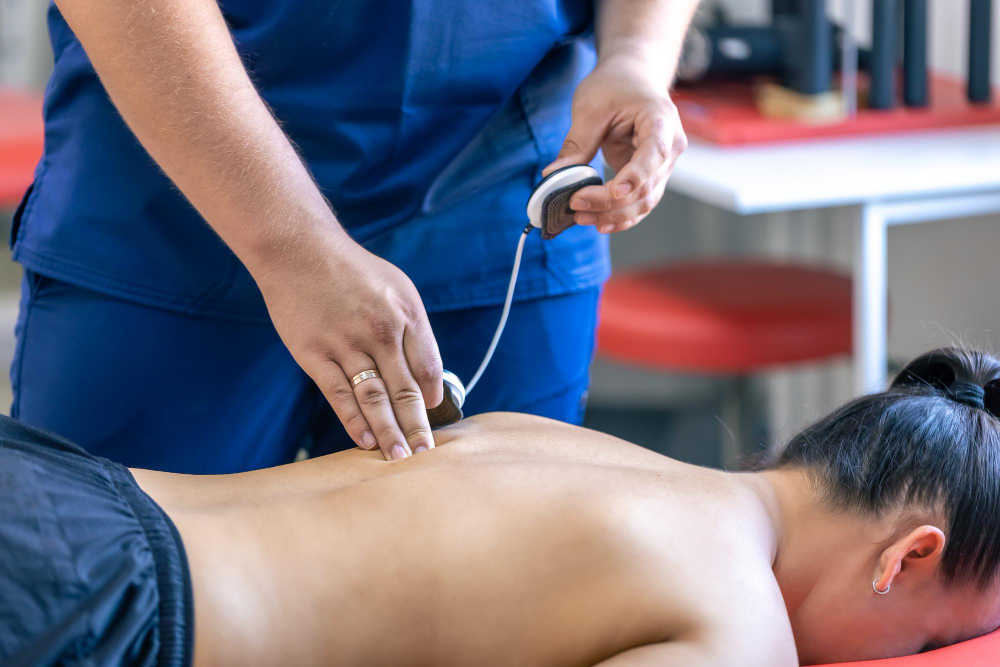What is osteopathy?
Osteopathy is a system of diagnosis and treatment applied to a wide range of medical conditions. It works with the structure and function of the body and is based on the principle that the well-being of a person is governed by the combined smooth functioning of the skeleton, muscles, ligaments and connective tissues.
In order for your body to work well, its structure must also work well. Osteopathy uses manual ‘hands-on’ techniques to improve circulation and correct altered biomechanics, without the use of drugs or surgery, where possible.
The techniques that osteopaths use, depend on the presenting condition, but may include physical manipulation, stretching and soft tissue massage to improve the mobility of joints, to relieve muscle tension, to enhance the blood and nerve supply to tissues, and to help your body’s own healing processes. They may also provide advice on posture and rehabilitative exercise to aid recovery, promote health and prevent symptoms recurring.
Did you know that osteopathy was the first complementary healthcare profession to be given statutory regulation by the government.
How can osteopathy help you?
Many common physical symptoms can be successfully treated using gentle, manipulative osteopathic techniques, including:
- Back pain
- Sciatica
- Whiplash
- Headaches caused by neck pain
- Arthritic pain
- Changes to posture in pregnancy
- Postural problems caused by driving or work strain
- Minor sports injuries
An osteopath’s patients will include all types of people, including the young, older people, manual workers, office professionals, pregnant women, children and sportspeople.
What happens at my first osteopathy appointment?
Attending your first appointment with an osteopath can be a little disconcerting to begin.
Step 1: The problem
At the beginning of your first session, the osteopath will ask you to tell them about your problem. They will ask questions about your medical history and lifestyle as well as your specific symptoms. This is very important, as it will help them to make an accurate diagnosis and suggest appropriate treatment. They will take notes and put them in your medical records. These will always be kept confidential in compliance with the Data Protection Act 1998 and if you wish, you may ask for a copy of these notes.
Step 2: Examination
Next, the osteopath will need to examine the area(s) of your body causing discomfort. Sometimes the cause of the problem may be in a different area to the pain, for example, a difference in leg length may result in compensations in the upper back which might result in neck pain, so they may need to examine your whole body. They will need to feel for tightness in the muscles and stiffness in the joints and may need to palpate these areas to identify problems. They will explain what they are doing as they go along. If you are at all uncomfortable with any part of this, you have the right to ask them to stop at any stage without prejudicing your future treatment.
Step 3: Treatment
A course of treatment should then be suggested, which may require several visits and an estimate of how often you will need to be seen, with any associated costs, usually by the end of the first session. Before your session, you will be asked your permission for the osteopath to provide treatment and asked to sign a consent form.
If deemed appropriate, treatment will begin at your first appointment, but sometimes your osteopath may require further tests first i.e. blood tests or scans. Very occasionally they may diagnose an illness that they feel they are unable to treat and may suggest that you consult your GP or another appropriate health professional.
You may experience mild discomfort with some of the treatment techniques used, which is normal, but osteopathic treatment is usually a very gentle process. Your osteopath will let you know if any discomfort is likely and it can be helpful to let them know what you are feeling.
Do I need osteopathy?
If you’re suffering from any of the symptoms above you probably could do with seeing an osteopath. If you are unsure if you need osteopathy and would like to speak to one of our practitioners to learn more call one of our clinics and we will be more than happy to advise you.





